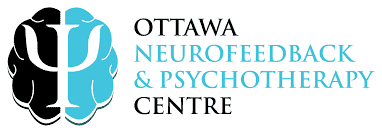Counseling For Anxiety
Anxiety is a normal reaction to stress and can be beneficial in some situations. It can alert us to dangers and help us prepare and pay attention. It feels uncomfortable, and most people think that anxiety is a bad thing, but anxiety is a perfectly normal part of being human. In fact, if we didn’t have SOME anxiety in our day to day experiences, we wouldn’t have healthy mechanisms that keep us safe, warm, and fed. We just don’t really notice these nuances of anxiety much because in smaller doses, anxiety results in qualities and actions such as conscientiousness, planning, and thoughtfulness.
Anxiety disorders differ from normal feelings of nervousness or anxiousness and involve excessive fear or anxiety.
Anxiety disorders are the most common of mental disorders and affect nearly 30% of adults at some point in their lives. But anxiety disorders are treatable and a number of effective treatments are available. Treatment helps most people lead normal productive lives.
Our team of dedicated professionals specializes in providing comprehensive support for individuals grappling with various forms of anxiety.
Anxiety Symptoms
Anxiety, a natural response to stress, can manifest in a myriad of ways, impacting thoughts, emotions, and physical well-being. At NuVista Mental Health, we recognize the importance of understanding these nuanced symptoms to tailor effective interventions for each individual.
Cognitive Symptoms
Excessive Worry: Persistent and uncontrollable worry about various aspects of life, even in the absence of immediate threats.
Racing Thoughts: An overwhelming influx of thoughts, often leading to difficulty concentrating or making decisions.
Catastrophic Thinking: Anticipating the worst-case scenarios, irrespective of the likelihood of their occurrence.
Emotional Symptoms
Restlessness: An inner sense of agitation or feeling on edge, making it challenging to relax.
Irritability: Heightened sensitivity and irritability, with individuals finding themselves easily frustrated or agitated.
Fear and Apprehension: An overwhelming sense of fear or impending doom, even in non-threatening situations.
Physical Symptoms
Muscle Tension: Persistent muscle tension, often leading to discomfort, headaches, or migraines.
Fatigue: Constant feelings of tiredness, irrespective of the amount of rest or sleep.
Gastrointestinal Distress: Symptoms such as nausea, stomachaches, or digestive issues can be common manifestations of anxiety.
Behavioral Symptoms
Avoidance: Steering clear of situations or activities that trigger anxiety, leading to social or occupational limitations.
Compulsive Behaviors: Engaging in repetitive behaviors or rituals as a way to alleviate anxiety.
Impaired Performance: Anxiety can impact one’s ability to perform tasks or make decisions effectively.
Sleep Disturbances
Insomnia: Difficulty falling asleep or staying asleep, often accompanied by restless nights.
Nightmares: Intense, anxiety-provoking dreams that can disrupt the sleep cycle.
Autonomic Nervous System Responses
Increased Heart Rate: A heightened heart rate, often experienced as palpitations.
Sweating: Excessive sweating, even in non-strenuous or cool environments.
Shallow Breathing: Rapid and shallow breathing, contributing to feelings of breathlessness or chest tightness.
Psychosomatic Symptoms
Psychosomatic Pain: Anxiety can contribute to the perception of physical pain without an underlying medical cause.
Dizziness or Lightheadedness: Feeling unsteady or dizzy, sometimes accompanied by a sense of unreality.
Understanding these symptoms is the first step toward effective intervention. At NuVista Mental Health, our team of skilled professionals collaborates with individuals to explore, understand, and address the unique manifestations of anxiety, fostering a path toward holistic well-being.
Unlock Peace of Mind with Nuvista
- Specialized Expertise: Our team comprises licensed mental health professionals with a background in psychology, ensuring you receive the highest standard of care.
- Tailored Treatment Plans: We recognize that anxiety manifests uniquely in each individual. Our personalized treatment plans cater to your specific needs, fostering a holistic approach to mental health.
- Evidence-Based Approaches: Nuvista Mental Health Counseling employs evidence-based therapies, with a focus on Cognitive Behavioral Therapy (CBT), Exposure Therapy, and Psychodynamic Therapy. These approaches have proven efficacy in addressing a spectrum of anxiety disorders.
- Comprehensive Anxiety Management: Our services extend beyond the common anxiety disorders, covering Generalized Anxiety Disorder (GAD), Social Anxiety Disorder, Panic Disorder, Obsessive-Compulsive Disorder (OCD), and Post-Traumatic Stress Disorder (PTSD).
Who Can Benefit?
Our counseling services are designed for individuals seeking support with anxiety-related challenges. Whether you are experiencing persistent worry, social discomfort, panic attacks, or trauma-related symptoms, Nuvista is here to guide you toward a path of resilience and recovery.
Types of Anxiety We Treat
At NuVista Mental Health, our seasoned professionals specialize in addressing a spectrum of anxiety disorders, recognizing the nuanced nature of each individual’s experience.
Generalized Anxiety Disorder (GAD)
Persistent and excessive worry about various aspects of life characterizes GAD. NuVista Mental Health provides targeted interventions to help individuals manage and alleviate the burden of chronic anxiety.
Social Anxiety Disorder
Fear and apprehension in social situations can hinder personal and professional growth. NuVista Mental Health offers supportive strategies to overcome social anxiety, fostering confidence and interpersonal ease.
Obsessive-Compulsive Disorder (OCD)
Intrusive thoughts and compulsive behaviors can disrupt daily life. NuVista Mental Health employs evidence-based approaches to help individuals regain control over obsessive thoughts and compulsive rituals.
Panic Disorder
Sudden, intense episodes of fear, often accompanied by physical symptoms, characterize panic disorder. NuVista Mental Health provides specialized interventions to manage and prevent panic attacks, promoting a sense of security.
Post-Traumatic Stress Disorder (PTSD)
Trauma can leave lasting emotional scars, manifesting as PTSD. NuVista Mental Health employs trauma-informed therapies to help individuals process and overcome the impact of traumatic experiences.
Specific Phobias
Intense and irrational fears of specific objects or situations can be debilitating. NuVista Mental Health employs exposure therapy and other evidence-based techniques to help individuals confront and manage their phobias.
Health Anxiety
Excessive worry about health and illness can significantly impact daily functioning. NuVista Mental Health provides support to individuals experiencing health-related anxiety, fostering a balanced perspective and coping mechanisms.
Our Approach to Treatment
NuVista Mental Health takes a holistic approach to treating anxiety, tailoring interventions to the unique needs of each individual. Our evidence-based modalities, including Cognitive Behavioral Therapy (CBT), Exposure Therapy, and Psychodynamic Therapy, form the foundation of our comprehensive treatment plans.
Cognitive Behavioral Therapy (CBT)
CBT is a cornerstone of anxiety treatment, focusing on identifying and reframing negative thought patterns. At NuVista Mental Health, our skilled therapists collaborate with individuals to cultivate healthier perspectives and coping mechanisms, promoting sustainable emotional well-being.
Exposure Therapy
For those grappling with specific fears or phobias, exposure therapy is a powerful tool. NuVista Mental Health guides individuals through gradual and controlled exposure to anxiety-inducing situations, fostering resilience and diminishing fear responses over time.
Psychodynamic Therapy
Understanding the root causes of anxiety is essential for long-term healing. NuVista Mental Health employs psychodynamic therapy to explore unconscious processes, past experiences, and relational dynamics, providing insight into the underlying factors contributing to anxiety.
Mindfulness-Based Approaches
Mindfulness techniques, including meditation and mindfulness-based stress reduction, offer valuable tools for managing anxiety. NuVista Mental Health integrates mindfulness practices into treatment plans, empowering individuals to cultivate present-moment awareness and resilience.
Medication Management
In some cases, medication may be a valuable adjunct to therapy. NuVista Mental Health collaborates closely with psychiatrists to assess the appropriateness of medication, tailoring interventions to address both the psychological and physiological aspects of anxiety.
Biofeedback and Relaxation Techniques
NuVista Mental Health recognizes the mind-body connection in anxiety. Biofeedback and relaxation techniques, such as deep breathing exercises and progressive muscle relaxation, are incorporated to help individuals regulate physiological responses and promote a sense of calm.
Integrated Holistic Approaches
At NuVista Mental Health, we embrace a holistic view of mental health. Integrated approaches may include nutritional counseling, exercise regimens, and lifestyle modifications to complement traditional therapeutic interventions, fostering comprehensive well-being.
Your Personalized Journey
NuVista Mental Health understands that each individual’s experience of anxiety is unique. Our skilled and compassionate team collaborates with clients to tailor treatment plans that align with their specific needs, preferences, and goals.
Take the First Step
If you are ready to reduce anxiety, improve mental health, and embark on a journey towards well-being, contact Nuvista Mental Health today. Our commitment to your mental health journey is unwavering, and together, we can achieve lasting positive change.
Take control of your mental well-being. Contact Nuvista Mental Health today to start your personalized journey towards overcoming anxiety. Your path to peace of mind begins here.




